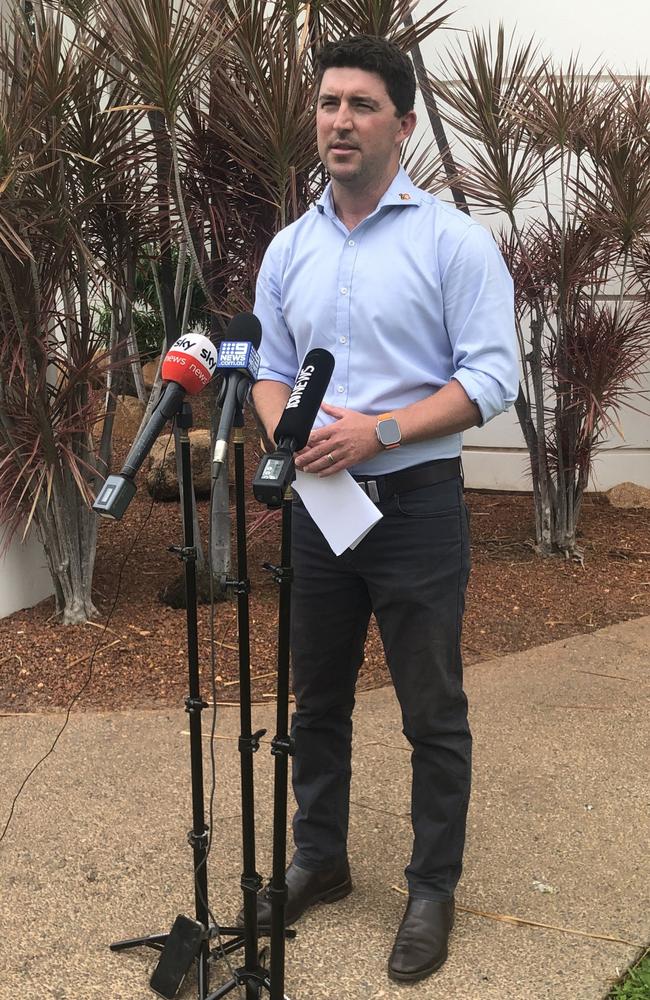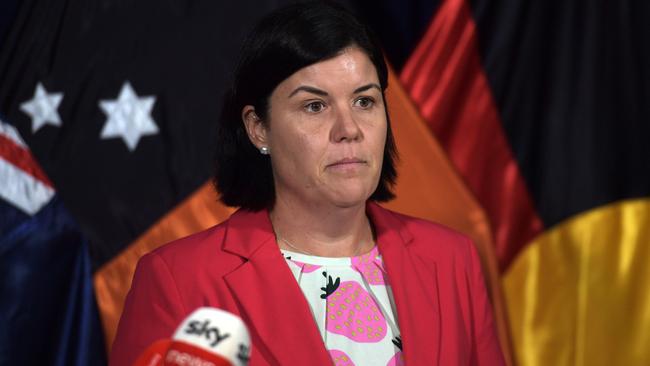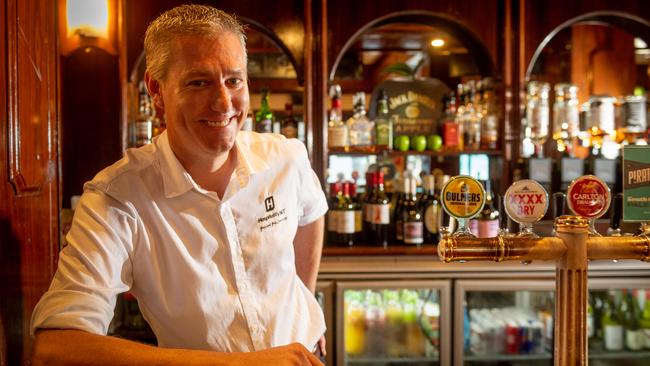CLP reveals plans to introduce liquor laws ahead of NT parliament
The CLP will bring forward its own liquor laws during the Territory’s first parliamentary sittings for the year.
News
Don't miss out on the headlines from News. Followed categories will be added to My News.
The CLP plans to introduce its own liquor legislation during parliamentary sittings this week.
Opposition whip Joshua Burgoyne said the legislation would give police greater powers in response to alcohol-related crime.
“This will aim to give police further measures to be able to police and essentially ensure that if there are people drinking in public, that there is something that they can do other than tip out alcohol,” Mr Burgoyne said.
“This is something that we’re going to be focusing on this week while also holding this Labor government to account.
“We know that they’re bringing their own legislation forward, an absolute knee-jerk reaction as to the thing that we’ve seen happen over the last couple of weeks.

“When we talk about the urgency with which this is being brought forward, it essentially says to us that the government had no intentions of ever bringing this back.
“They have been strong-armed by the federal government to ensure that, basically, they backtrack.
“They have egg all over their face on this.”

Chief Minister Natasha Fyles said amendments to the Liquor Act would be debated on urgency to “put in place those community alcohol plans across the Northern Territory”.
Ms Fyles previously said NT government policy recognised the harm caused by alcohol to the community while acknowledging it’s a legal product.
“This isn’t Stronger Futures, this is Territory-based legislation,” she said.
“It’s trying to find that balance between respecting local community voices and there’ll be some people that will be disappointed with (the) announcement.
“It does provide a clear pathway allowing local leadership to come together around this issue and a clearly defined process.”

Hospitality NT chief executive Alex Bruce said many Alice Springs venues “seem to be quite pleased with what’s been announced from both the federal and Territory governments”.
“From October last year, we joined the call for a rethink of the opt in opt out system,” Mr Bruce said.
“We do think that it was contributing to some of the problems that our venues and the community was facing.
“We’re happy to see that change come through parliament, and some of us are already questioning if we do need the 90-days restrictions to last beyond when that is implemented.”
It comes as an ongoing Joint Standing Committee on Aboriginal and Torres Strait Islander Affairs heard the both levels of government were given months of warning that alcohol bans were “reckless” and failing ahead of latest booze ban backflip.
Aboriginal medical, housing and legal bodies, social services and the police union have all told a Joint Committee for Aboriginal and Torres Straight Islander Affairs that - despite their warnings - liquor returned to communities without management plans, services for addiction, sobering up or domestic violence shelters.
Association of Alcohol and other Drug Agencies NT Executive OfficerPeter Burnheim said in a written submission to the committee in December there had been an “absolute abrogation of responsibility” following the end of Stronger Futures, leaving communities “in no better position” 15 years on.
“Despite this change having been forecast for many years it does not appear there was any evaluation of the preparedness of affected communities,” Mr Burnheim wrote.
Mr Burnheim said even before bans lifted the alcohol and other drug sector was chronically underfunded with no plans to manage the increase in demand.

Ms Fyles said the federal government “waited until the last minute to tell us they would be doing nothing” but the Central Australian-based People‘s Alcohol Action Coalition wrote in a submission to the committee it was her government’s failure to “deal sensibly and with foresight”.
“It beggars belief that a government which has demonstrated a strong commitment to alcohol reform could pursue such a reckless course,” PAAC wrote in a December submission to the Joint Committee.
“Perhaps (Indigenous Australians Minister) Ken Wyatt did abandon the issue and the NTG then scrambled to find a solution, grabbed the race card and implemented its legislation despite the strong objections,” PAAC said.
Ms Fyles said more than 240 consultations were held, but when the July changes kicked in only seven of 400 communities opted-in to extended restrictions.
NT Police Association President Paul McCue said harm reduction measures were “not taken up with any degree of urgency” and the Territory “ broadly failed” to prepare for Stronger Futures ending.
He said despite 2017 Riley Review recommending local decision making, many communities were not given the opportunity to develop alcohol management plans.




